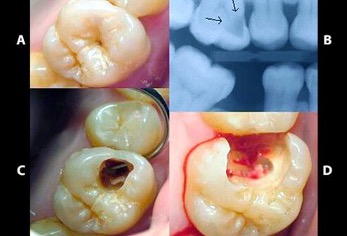In the period of Covid-19, dentists are faced with many emergencies. Most of these emergencies involve an intensely painful tooth and swelling caused by gum disease or tooth decay.
In this issue, we will discuss how the dentist determines when a bad tooth should be extracted.
When a patient experiences an achy tooth, the first thought may be to “TAKE THIS TOOTH OUT!” For some cases an extraction may be the only option; however, that is a decision that you and your dentist can make together. Making the best choice now could save you from further pain in the long run.
Do we extract this painful tooth all the time? Sometimes we do and yet again sometimes we do not.
Another patient presents with a severely shaky tooth. It’s not painful; however, the patient cannot eat properly. Also, missing teeth are seen throughout the mouth. The question is should we extract the shaky tooth now to avoid having to extract it a few months or years later?
Yet another patient presents with a tooth that has a large cavity but the patient feels no pain; just sensitivity to hot, cold or sweets. How should a dentist manage this situation with the large cavity-stricken tooth? Should this tooth be extracted?
In these three scenarios, dentists are trained not only to treat them and eliminate the pain but most importantly advise you of the options for a comprehensive plan to prevent further disease.
In the first scenario, when the cavity invades the pulp chamber a tooth filling alone cannot correct this. The tooth now requires a root canal to be saved. Today, with the experience of many dentists and the specialty of Endodontics dentists are equipped to correct these ailments and save your tooth. When the infected tooth is a molar (large back teeth) a specialist is recommended. Once the root canal is completed, it is best to put a crown on the tooth to preserve it and avoid a later fracture. Teeth become brittle after a root canal and if not immediately protected with a crown, sometimes it fractures and has to be extracted.
If you have decided on an extraction or your dentist agrees an extraction is the only option; depending on the location and the surrounding teeth then replacement of the missing tooth is encouraged. Replacement options for an extracted tooth include; implants, bridges or removable appliances. Your dentist can explore these options with you.
Some advantages of extracting “bad” teeth:
- Usually instant pain relief
- If you replace the tooth within 3-6 months it prevents jaw collapse and shifting teeth.
- The immediate cost of an extraction is generally less expensive than the cost of saving a tooth.
- Having a tooth extracted increases your options in terms of what to do with the gap that is left. For example, you may decide to have an implant, a bridge or partial denture.
Some disadvantages of extracting “bad” teeth:
- Surrounding teeth may shift or move into the space where the tooth is missing. This can cause issues with your bite and overall oral hygiene.
- Missing teeth can affect your speech and ability to bite and chew.
- Also, you are also likely to incur high costs associated with the tooth replacements that you select. For instance, partial dentures are unlikely to last for the rest of your life and you will need to keep getting new ones from time to time.
Deciding to extract or not to extract a bad tooth is a constant question that dentists and patients face regularly. Shared communication that is open and honest can assist you through the many questions and situations. Rest assured, being proactive will serve you well as you continue to commit to good oral health and wellness.
Dr. Kendal V. O. Major is Founder and CEO of Center for Specialized Dentistry which is a comprehensive family dental practice operating in Nassau and Freeport. He is the first Bahamian Specialist in gum diseases and dental implants since 1989. He also is a certified Fast braces provider. His practice is located at 89 Collins Avenue, Nassau at (242)325-5165 or [email protected].

Should we extract? From A-D-Process of a cavity- Begins as a small pit and progressed to the nerve

Should we extract? – Severe gum abscess (cuspid and lateral incisor)





